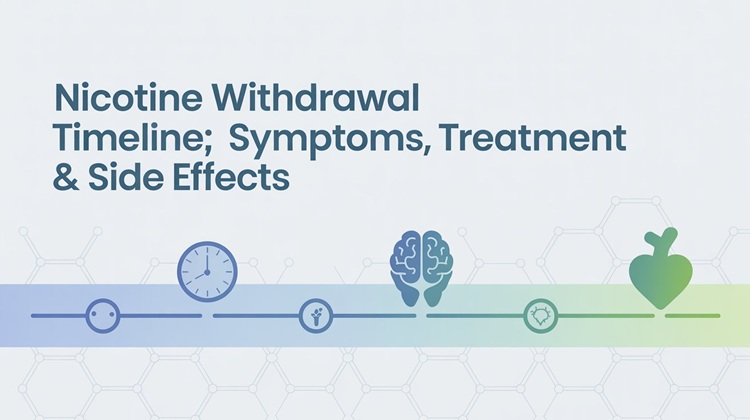Codependency and Interdependency are two terms that are often used interchangeably, but they have very different meanings. Codependency is a pattern of unhealthy relationship behaviors that involve excessive reliance on another person for emotional support and validation. Interdependency, on the other hand, is a healthy relationship dynamic in which both partners can give and receive support while maintaining their identities and boundaries. To find out more about codependency versus interdependency or to schedule a consultation with a therapist at Palm Coast Treatment Solutions, please call (386) 284-4151

Understanding Codependency
Codependency is a relational dynamic characterized by one person excessively relying on another for emotional support, validation, and identity. It often involves enabling behaviors and a lack of healthy boundaries. In codependent relationships, individuals tend to prioritize the needs and happiness of their partner over their own, often at the expense of their well-being.
Characteristics of Codependent Relationships
Understanding Interdependency
Interdependency, in contrast to codependency, represents a healthy and balanced approach to relating to others. In interdependent relationships, individuals maintain their autonomy and self-worth while also valuing and supporting their partners. It is a mutual give-and-take dynamic that promotes personal growth and emotional well-being.
100% Confidential Support is Available 24/7
No matter what you’re going through, you’re not alone. Our dedicated team is here to provide a safe, judgment-free space where you can talk openly and honestly. Whether you need emotional support, resources, or just someone to listen.
We’re here for you—completely confidential and always respectful of your privacy. Call us today!
Codependency relationships exhibit several common traits, including:
- Excessive caretaking: Codependents frequently prioritize their partner’s needs over their own, creating a one-sided relationship.
- Low self-esteem: Codependent individuals often struggle with feelings of inadequacy and derive their self-worth from external validation.
- Difficulty setting boundaries: They find it challenging to assert themselves and may feel overwhelmed by their partner’s demands.
- Fear of abandonment: Codependents may go to great lengths to avoid rejection or abandonment, often neglecting their own needs in the process.
Contact Palm Coast Treatment Solutions
Battling with Drug and Alcohol Addition? Remember, you are not alone and we are here to help you!
Causes and Origins of Codependency
Codependency can be rooted in various causes and origins, including:
- Family upbringing: Growing up in a dysfunctional family where emotional needs were unmet or where addiction and unhealthy relationships were prevalent can contribute to codependency.
- Trauma: Experiencing trauma or abuse in childhood or past relationships can lead to codependent tendencies as a coping mechanism.
- Low self-esteem: Individuals with low self-esteem may be more prone to seeking external validation in relationships.
Overcome Addiction with Palm Coast Treatment Solutions.
Book an appointment.
Advantages of Interdependency Relationships
Interdependency relationships offer several advantages, including:
- Mutual respect: Partners in interdependent relationships respect each other’s boundaries and individuality.
- Emotional support: Both individuals provide emotional support and encouragement, enhancing each other’s well-being.
- Personal growth: Interdependence encourages personal growth, as each person is encouraged to pursue their goals and passions.
Nurturing Interdependency
To foster interdependency in your relationships, consider the following:
- Open communication: Communicate openly about your needs, boundaries, and goals with your partner.
- Mutual support: Encourage and support each other’s pursuits and aspirations.
- Balancing independence and togetherness: Find a healthy balance between spending time together and maintaining personal space and interests.
Examples of Codependency and Interdependency Relationships:
Codependency:
- A partner who enables their spouse’s addiction or unhealthy behavior.
- A person who stays in a relationship with an abusive partner, even though the relationship is harming them.
- A parent who sacrifices their own needs and well-being to care for their child, to the point where the child becomes overly dependent on them.
Interdependency:
- Two partners who support each other through a difficult time, while also maintaining their own lives and interests.
- A couple who works together to manage their finances and household responsibilities, while also respecting each other’s autonomy and boundaries.
- Two friends who rely on each other for emotional support and companionship, while also having other friends and hobbies outside of their friendship.
It is important to note that interdependency can become codependency if it is not managed healthily. For example, if one partner becomes excessively dependent on the other, or if one partner begins to control the other’s life, the relationship may become codependent.
Other differences between codependency versus interdependency relationships:
Codependency:
- Unhealthy reliance: Codependent partners rely on each other for everything. They may have difficulty making decisions on their own or taking care of themselves.
- Control and manipulation: Codependent partners may try to control each other or manipulate each other into doing what they want.
- Fear of abandonment: Codependent partners may be afraid of being abandoned by their partners. This fear may lead them to stay in a relationship even if it is unhealthy.
- Enmeshment: Codependent partners may be so enmeshed in each other’s lives that they lose their sense of self. They may feel like they are incomplete without their partner.
Interdependency:
- Mutual support and respect: Interdependent partners support each other’s goals and dreams, and they respect each other’s autonomy. They don’t try to control each other or make decisions for each other.
- Healthy communication: Interdependent partners communicate openly and honestly with each other. They can express their needs and wants, and they listen to each other with respect.
- Individuality: Interdependent partners can maintain their sense of self, even while they are in a relationship. They have their interests, hobbies, and friends.
- Boundaries: Interdependent partners have healthy boundaries. They know where to draw the line between what is their responsibility and what is their partner’s responsibility.
It is important to note that codependency and interdependency are not black-and-white concepts. There is a spectrum of relationship dynamics, and some relationships may have elements of both codependency and interdependency. However, the key difference is that interdependent relationships are healthy and supportive, while codependent relationships are unhealthy and destructive.
Overcome Addiction with Palm Coast Treatment Solutions.
Book an appointment.
How to Evaluate if You’re in a Codependent or Interdependent Relationship?
Codependence, on the other hand, is an unhealthy relationship dynamic where one or both partners are overly reliant on each other and have difficulty functioning independently.
Interdependence is a healthy relationship dynamic where two people are emotionally connected and supportive of each other, while also maintaining their identities and interests.
Signs that you may be in a codependent relationship:
- You feel like you need your partner to be happy and complete.
- You have difficulty making decisions or taking action without your partner’s approval.
- You feel guilty or anxious when you spend time away from your partner.
- You feel responsible for your partner’s happiness and well-being.
- You have difficulty expressing your own needs and wants.
- You have difficulty setting and enforcing boundaries.
- You engage in unhealthy behaviors, such as enabling your partner’s addiction or abusive behavior.
Signs that you may be in an interdependent relationship:
- You feel comfortable and supported by your partner, but you also have a strong sense of self and independence.
- You have your interests and goals, and you support your partner in theirs.
- You can make decisions and take action without needing your partner’s approval.
- You can communicate openly and honestly with your partner about your needs and wants.
- You can resolve conflict healthily and productively.
If you are unsure whether you are in a codependent or interdependent relationship, it may be helpful to talk to a trusted friend, family member, or therapist. They can help you to assess your relationship and identify any unhealthy patterns. If you’re based in Palm Coast, feel free to contact Palm Coast Treatment Solutions, our expert therapist will be happy to help you. Call us at (386) 284-4151
Get Quality and Evidence-based Mental Health Treatment at Palm Coast Treatment Solutions
If you’re worried that your relationship may be showing signs of codependency, don’t hesitate to reach out to Palm Coast Treatment Solutions. We’re here to provide support and guidance for you and your partner in breaking free from unhealthy patterns and rebuilding a more balanced and thriving relationship. Feel free to call us at (386) 284-4151 to discover how our mental health treatment programs can equip you with the tools and knowledge needed to foster healthier and happier relationships.
Overcome Addiction with Palm Coast Treatment Solutions.
Book an appointment.
Frequently Asked Questions (FAQs)
Q: What are the warning signs of codependency?
Ans: Codependency is a relational pattern where an individual excessively relies on another person for their sense of self-worth and identity. Recognizing the warning signs of codependency is crucial for fostering healthier relationships. Here are some common indicators:
- Difficulty Setting Boundaries
- Low Self-Esteem
- People-Pleasing Behavior
- Fear of Abandonment
- Caretaking Behavior
- Difficulty Expressing Emotions
- Dependency on Relationships for Happiness
- Difficulty Making Decisions
- Denial of Codependent Behavior
- Intense Fear of Conflict
Codependents often go to great lengths to avoid conflict, even if it means suppressing their own needs or opinions. This fear can hinder open communication and resolution in relationships.
Recognizing these warning signs is the first step toward breaking the cycle of codependency. Seeking support from therapists, counselors, or support groups can be instrumental in developing healthier relationship dynamics and fostering personal growth.
Q: Can codependent individuals have healthy relationships?
Ans: Yes, individuals with codependency can develop and maintain healthy relationships with self-awareness, effort, and support.
Codependency is a pattern of behavior where one person excessively relies on another for emotional support, approval, or a sense of identity. While codependency can pose challenges in relationships, it doesn’t mean that individuals with codependent tendencies are incapable of having healthy connections.
Key Steps for Codependents in Building Healthy Relationships:
- Self-Awareness
- Establishing Boundaries
- Building Independence
- Communication Skills
- Seeking Support
It’s important to note that overcoming codependency is a process, and progress may vary from person to person. Healthy relationships require effort, mutual respect, and a commitment to personal growth from all parties involved.
Q: How can I transition from codependency to interdependency?
Ans: Transitioning from codependency to interdependency involves cultivating healthier, balanced relationships where individuals maintain their independence while fostering mutual support and connection. Here are some steps to help guide your journey:
- Self-awareness
- Set Boundaries
- Build Self-Esteem
- Develop Independence
- Communicate Effectively
- Mutual Respect
- Collaborative Decision-Making
- Embrace Interdependence
- Practice Patience
Remember, transitioning from codependency to interdependency is a gradual process that requires self-reflection, commitment, and a willingness to embrace change. Be compassionate with yourself and celebrate the progress you make along the way.
Q: Is it possible to be both codependent and interdependent in different relationships?
Ans: Yes, it is possible to be both codependent and interdependent in different relationships. Codependency and interdependence represent two ends of a relational spectrum.
Codependency involves excessive reliance on another person to meet emotional and self-esteem needs, often at the expense of one’s well-being. On the other hand, interdependence emphasizes mutual reliance, where individuals maintain a healthy balance between autonomy and connection.
It is common for people to exhibit varying degrees of these traits in different relationships, as dynamics and needs differ. Recognizing and fostering interdependence while addressing codependent tendencies can contribute to healthier and more balanced relationships. Seeking support and practicing self-awareness are essential steps in navigating and improving relationship dynamics.
Q: Can codependency and interdependency coexist in one person’s life?
Ans: Yes, codependency and interdependency can coexist in one person’s life, but it’s important to understand the distinctions between the two concepts. Codependency typically involves an unhealthy reliance on others for emotional well-being, often to the detriment of one’s own needs. On the other hand, interdependency refers to a mutually supportive and balanced relationship where individuals rely on each other while maintaining a sense of autonomy.
In some cases, individuals may exhibit codependent tendencies in certain relationships while demonstrating interdependence in others. Achieving a healthy balance involves self-awareness, setting boundaries, and fostering relationships that encourage mutual support without sacrificing individual needs. Professional counseling or therapy can be beneficial for those seeking to navigate and improve their relational dynamics.






















